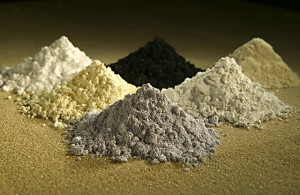
More evidence that low-calorie sweeteners are bad for your health
Studies show that artificial sweeteners can raise the risk of hypertension, metabolic syndrome, type 2 diabetes and heart disease, including stroke.

Natural Health News — New evidence demonstrates that nanoparticles of cerium oxide – a common diesel fuel additives used to increase the fuel efficiency of automobile engines – can travel from the lungs to the liver and that this process in turn causes liver damage.
Cerium is a rare earth metal. This study follows from industry research suggesting that man-made cerium oxide nanoparticles may have antioxidant properties, leading to the hypothesis that they may also be useful for the treatment of cardiovascular disease, neurodegenerative disease and radiation-induced tissue damage.
Such research is, in part, aligned with corporate medicine’s agenda to find man-made, patentable substances that can replace natural supplements – which are increasingly being restricted in the market place (see our recent comment). However, nano-particles behave unpredictably in the human body depending on their size and dose.
Researchers at Marshall University’s in West Virginia, found that there was a dose-dependent increase in the concentration of cerium in the liver of animals that had been exposed to the nanoparticles, which are only about 1/40,000 times as large as the width of a human hair. In other words, the higher the exposure the greater the damage.
These increases in cerium were associated with elevations of liver enzymes in the blood and liver tissue samples showed evidence consistent with damage. The research was published in the peer-reviewed research journal, International Journal of Nanomedicine.
Cerium oxide is widely used as a polishing agent for glass mirrors, television tubes and ophthalmic lenses. Cerium oxide nanoparticles are used in the automobile industry to increase fuel efficiency and reduce particulate emissions.
Dr Eric R Blough, director of the university’s Center for Diagnostic Nanosystems and an associate professor in its Department of Biological Sciences, said, “Given the ever-increasing use of nanomaterials in industry and in the products we buy, it is becoming increasingly important to understand if these substances may be harmful. To our knowledge, this is the first report to evaluate if inhaled cerium oxide nanoparticles exhibit toxic effects in the liver.”

Please subscribe me to your newsletter mailing list. I have read the
privacy statement